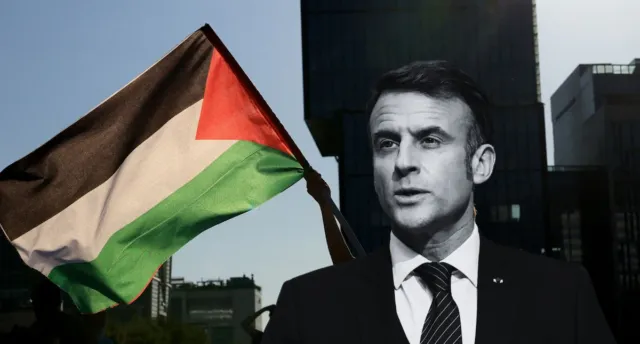
Palestine Recognition Sparks Outrage: ‘Adding Insult to Injury’ Amidst Ongoing Conflict
The recent wave of international recognition of a Palestine state has ignited fierce debate, with critics arguing that such moves are akin to ‘adding insult to injury’ given the current volatile situation in Gaza and the broader Israeli-Palestinian conflict. Several European countries, including Norway, Spain, and Ireland, have formally recognized Palestine, a decision lauded by Palestinian officials as a significant step towards self-determination but condemned by Israel as a reward for terrorism.
The phrase ‘adding insult to injury’ reflects a sentiment of deep frustration and anger, particularly among those who believe that recognizing Palestine at this moment undermines Israel’s security and legitimizes Hamas’s actions. Critics argue that focusing on statehood recognition distracts from the immediate need to address the humanitarian crisis in Gaza, secure the release of hostages, and dismantle Hamas’s military capabilities. They contend that premature recognition could embolden extremist groups and hinder future peace negotiations.
Global Reactions and Political Divisions
The decision by Norway, Spain, and Ireland has triggered a wave of reactions across the globe. Support for Palestine recognition is growing within the international community, especially among countries that have long advocated for a two-state solution. These nations argue that recognizing Palestine is a crucial step in acknowledging Palestinian rights and providing a pathway towards a more equitable and lasting peace.
- Proponents: See recognition as a necessary step to level the playing field and push for meaningful negotiations.
- Critics: Believe it undermines Israel’s security and rewards terrorism, especially after the October 7th attacks.
The United States, while reaffirming its commitment to a two-state solution, has expressed reservations about unilateral recognition, arguing that a Palestinian state should emerge from direct negotiations between Israel and the Palestinians. This stance reflects a broader concern that premature recognition could complicate the peace process and potentially destabilize the region further.
Impact on the Ground
The practical impact of these recognitions on the ground remains to be seen. While it provides a symbolic boost to the Palestinian cause and strengthens their international standing, it does little to immediately alleviate the suffering in Gaza or resolve the core issues of the conflict, such as borders, settlements, and the status of Jerusalem. The ongoing humanitarian crisis, exacerbated by the conflict, demands immediate attention, and critics argue that focusing on recognition distracts from these urgent needs.
Furthermore, the recognitions have strained relations between the involved European countries and Israel. Israel has recalled its ambassadors from Norway, Spain, and Ireland in protest, signaling a significant deterioration in diplomatic ties. This diplomatic fallout underscores the depth of disagreement and the challenges ahead in finding a resolution to the conflict.
The Future of the Peace Process
The path forward remains uncertain. While the recognition of Palestine has invigorated the debate about Palestinian statehood, it has also deepened divisions and complicated the already complex peace process. Moving forward will require a renewed commitment to dialogue, a focus on addressing the immediate humanitarian needs, and a willingness from all parties to compromise. The international community must play a constructive role in facilitating these efforts and ensuring that any future resolution is just, sustainable, and respects the rights and security of both Israelis and Palestinians.
Slovenia has also recently recognized the State of Palestine, further adding fuel to the fire. The move has been praised by pro-Palestine activists and organizations, while being heavily criticized by Israeli officials. The Slovenian government argues that this recognition is a step towards a two-state solution and peace in the region, while Israeli officials say that it is premature and harmful to the peace process. The impact of Slovenia’s decision is still being assessed, but it is likely to further strain relations between the two countries.
The core of the issue lies in finding a way to reconcile the competing narratives and address the underlying grievances that have fueled the conflict for decades. Without a genuine commitment to peace and a willingness to engage in meaningful negotiations, the cycle of violence and recrimination is likely to continue.
Disclaimer: This report is auto-generated by AI.




